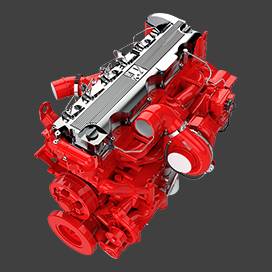Sep . 09, 2024 16:39 Back to list
Do Brake Drums Squeak? Understanding Causes and Solutions
Understanding the Squeaking of Brake Drums Causes and Solutions
Brake drums are an essential component of a vehicle’s braking system, primarily in older cars and heavy-duty vehicles. When functioning correctly, they provide reliable stopping power. However, drivers often report a common issue squeaking sounds coming from the brake drums. This article will help you understand why brake drums squeak and what you can do to address this problem.
Causes of Squeaking Brake Drums
1. Dust and Debris Accumulation One of the most common causes of squeaking brake drums is the accumulation of dust, dirt, and debris. Over time, these particles can find their way into the braking system, leading to noise when the brakes are applied.
2. Worn Brake Shoes Brake shoes press against the inside of the brake drum to create friction and stop the vehicle. If the brake shoes are worn down unevenly or excessively, they may not make proper contact with the drum surface, resulting in a squeaking sound.
3. Low-Quality Brake Components Using low-quality or incompatible brake components can lead to performance issues. Poor-quality brake shoes and drums may not be designed to work together, leading to vibrations and noise as the brakes are engaged.
4. Moisture Sometimes, environmental factors can contribute to squeaking symptoms. Moisture from rain or humidity can cause rust or corrosion to form on the brake drum surface, interfering with the proper function of the brakes and leading to squeaks.
5. Lack of Lubrication The braking system consists of various moving parts that require proper lubrication. A lack of lubrication on the brake hardware, such as the backing plates or springs, can lead to increased friction and noise.
do brake drums squeak

Solutions to Squeaking Brake Drums
1. Inspection and Cleaning Regularly inspecting your brake drums can help catch issues early. Cleaning any accumulated dust or debris can often resolve minor squeaks. Use a brake cleaner spray for effective results.
2. Replace Worn Parts If worn brake shoes are the culprit, consider replacing them. Ensure that you use high-quality components that are specifically designed for your vehicle to avoid compatibility issues.
3. Use Anti-Squeak Products There are various products available, such as anti-squeak shims or sprays, which can be applied during installation to reduce noise.
4. Professional Assessment If cleaning and standard maintenance do not resolve the issue, it may be time to seek professional assistance. Mechanics can provide a thorough inspection and determine if there are underlying issues within the braking system.
5. Routine Maintenance Regular maintenance is key to preventing squeaks and ensuring the longevity of your braking system. Keep an eye on brake wear, and replace components as recommended by your vehicle manufacturer.
In conclusion, while squeaking brake drums can be an annoyance, understanding the causes and implementing the appropriate solutions can help maintain a smooth and quiet braking experience. Regular maintenance and attention to your vehicle's braking system will contribute significantly to your safety and comfort on the road.
-
ROR Web Development: Build Fast, Scalable, Secure Apps
NewsAug.17,2025
-
Scania Brake Drums: OEM Quality for Optimal Safety & Durability
NewsAug.16,2025
-
R.V.I: Advanced Remote Visual Inspection for Precision
NewsAug.15,2025
-
Discover HYUNDA: Innovative Vehicles, Equipment & Solutions
NewsAug.14,2025
-
R.V.I: Unlock Advanced Insights & Real-time Performance
NewsAug.13,2025
-
Kamaz Brake Drum: Durable & Reliable for Heavy Duty Trucks
NewsAug.12,2025
